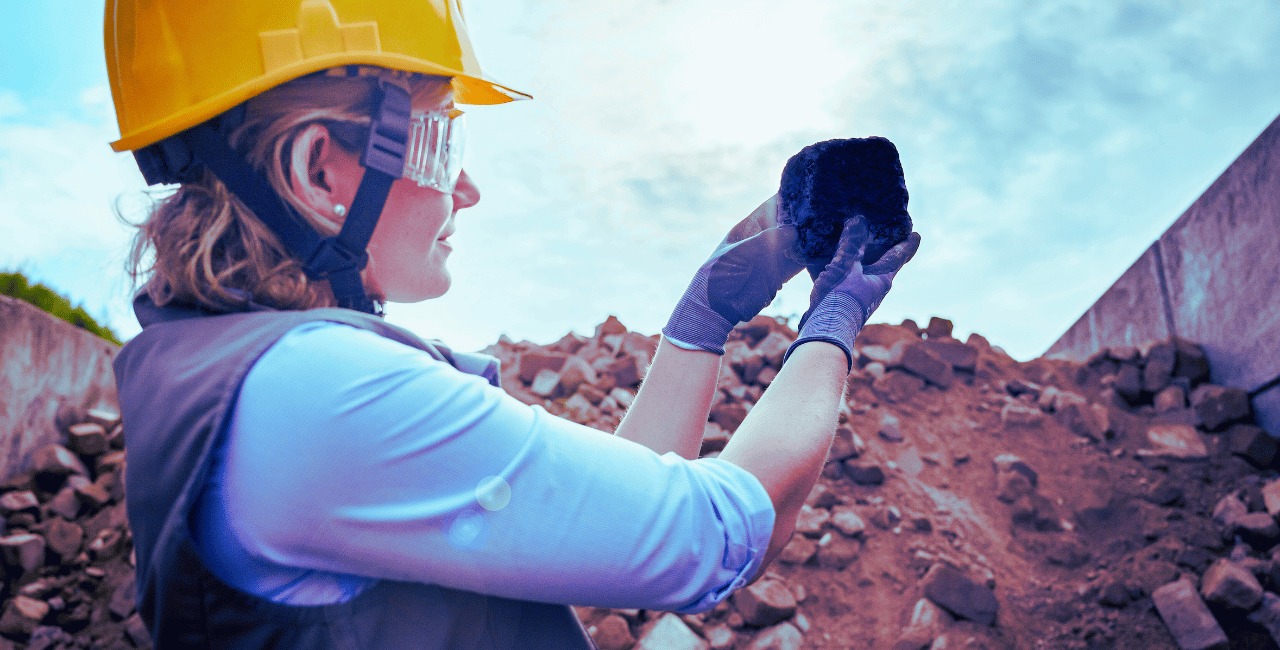
Made from magnesite, magnesia’s unique properties make it indispensable for high-temperature applications and essential for producing key materials like steel, cement, ceramics, glass and even components for renewable energy technologies.
Without magnesite, magnesia would not exist, and without magnesia, the world as we know it wouldn’t exist either.
Why is it so important?
Magnesia is vital for over 100 industrial applications. Moreover, it's indispensable for the processing of over 12 out of 34 critical raw materials, including aluminium and copper, which are key in various industries. It also plays a key role in future technologies like renewable energy, batteries and electric mobility, supporting the shift to a greener economy.
Despite its critical role, magnesia remains unlisted as a critical raw material, making it a candidate for reassessment in the EU’s raw materials strategy.
What is Magnesia?
Learn more about the development required in the EU to secure magnesia supply and the current challenges being faced.
Materials listed as strategic in the EU's Critical Raw Materials Act are essential in sectors like renewable energy, digital technologies, and electric vehicles. These are key for Europe’s green transition and technological sovereignty.
Magnesia is essential in the production of several of these materials to produce batteries, wind turbines, solar panels, energy storage systems and electromobility.
Without a stable supply of magnesia, the production of vital materials such as aluminium, copper, and cobalt could face disruptions, threatening the EU’s energy transition and competitiveness.
Securing Magnesia:
The key to powering
Europe's green transition
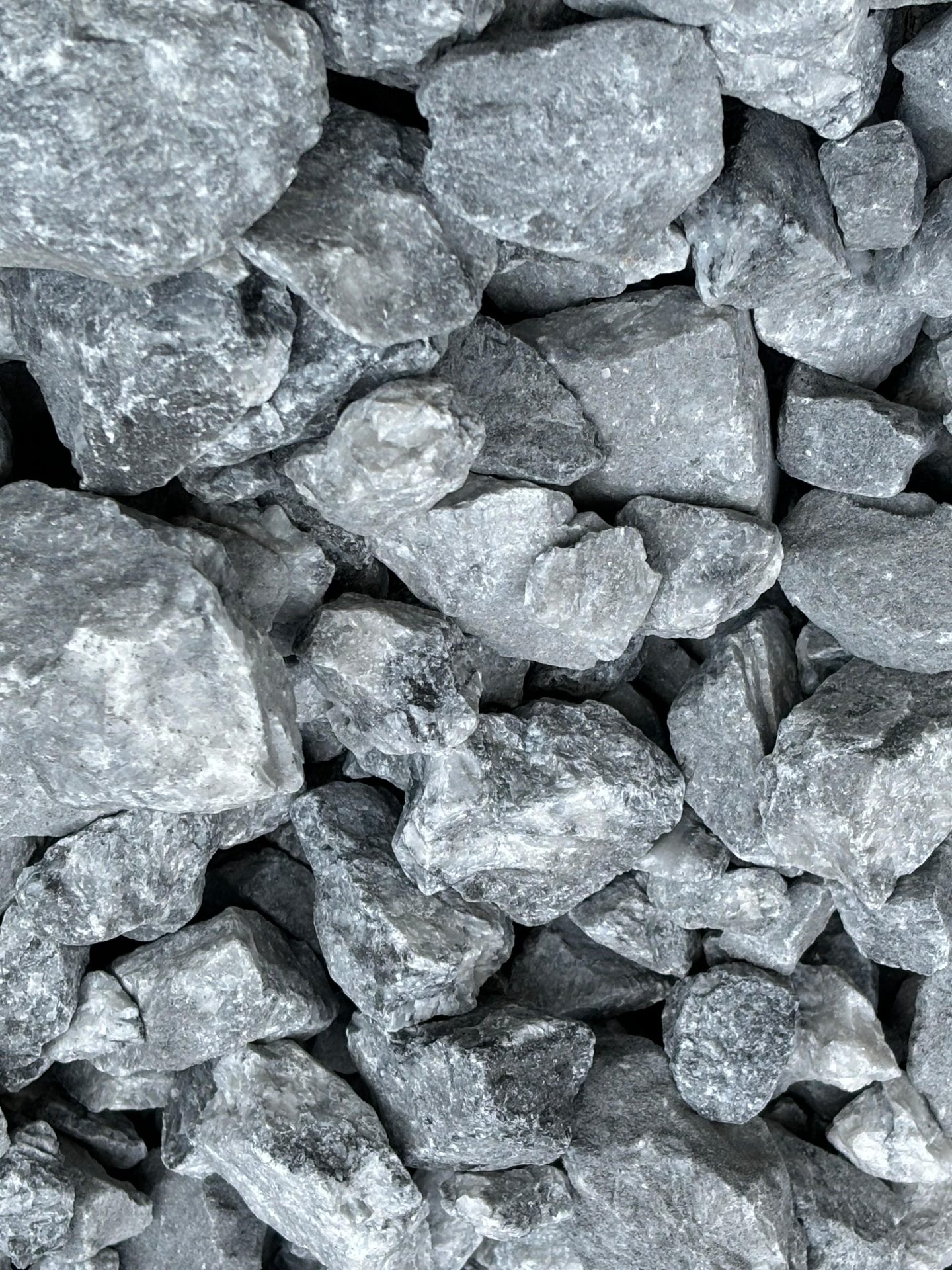
Our Magnesite and Magnesia initiative
The European magnesite and magnesia industry urges the European Commission to recognize the strategic importance of these materials in the 2025 review of the Critical and Strategic Raw Materials Lists. Essential for processing strategic raw materials, decarbonizing steel, and enabling green technologies like electric vehicles and advanced batteries, magnesite and magnesia are vital to Europe’s green and digital transition.
Despite their significance, these materials remain absent from the Critical Raw Materials Act, leaving Europe vulnerable, especially as nearly 80% of global magnesite reserves are controlled by China, Russia, and North Korea.
The industry calls for their inclusion as strategic raw materials and a full evaluation of their supply chain to reduce dependency, enhance sustainability, and strengthen Europe’s economic resilience.
Producers are committed to responsible practices and supporting Europe’s autonomy, ensuring these critical materials drive innovation and competitiveness while securing a sustainable future.

Magnesia for Europe
The European magnesite and magnesia industry urges the European Commission to recognize the strategic importance of these materials in the upcoming review of the Critical and Strategic Raw Materials Lists. Essential for processing strategic raw materials, decarbonizing steel, and enabling green technologies like electric vehicles and advanced batteries, magnesite and magnesia are vital to Europe’s green and digital transition.
Despite their significance, these materials remain absent from the Critical Raw Materials Act, leaving Europe vulnerable, especially as nearly 80% of global magnesite reserves are controlled by China, Russia, and North Korea.
The industry calls for their inclusion as strategic raw materials and a full evaluation of their supply chain to reduce dependency, enhance sustainability, and strengthen Europe’s economic resilience.
Producers are committed to responsible practices and supporting Europe’s autonomy, ensuring these critical materials drive innovation and competitiveness while securing a sustainable future.
The Magnesia Pledge for Europe
Coinciding with the Raw Materials Week 2024 in Brussels, RHI Magnesita, together with Euromines, hosted the “Magnesia Cocktail” in Brussels. This high-level event emphasized the critical role of magnesite and magnesia in Europe’s green transition and in building industrial competitiveness. The event brought together industry leaders, policymakers, and experts to underline the urgent need to include magnesite and magnesia on the EU’s list of Critical Raw Materials to ensure raw material supply security for Europe.
During the event, RHI Magnesita and representatives from Europe’s magnesite and magnesia producing industries signed a joint pledge, urging the European Commission to recognize the strategic importance of magnesite and magnesia.
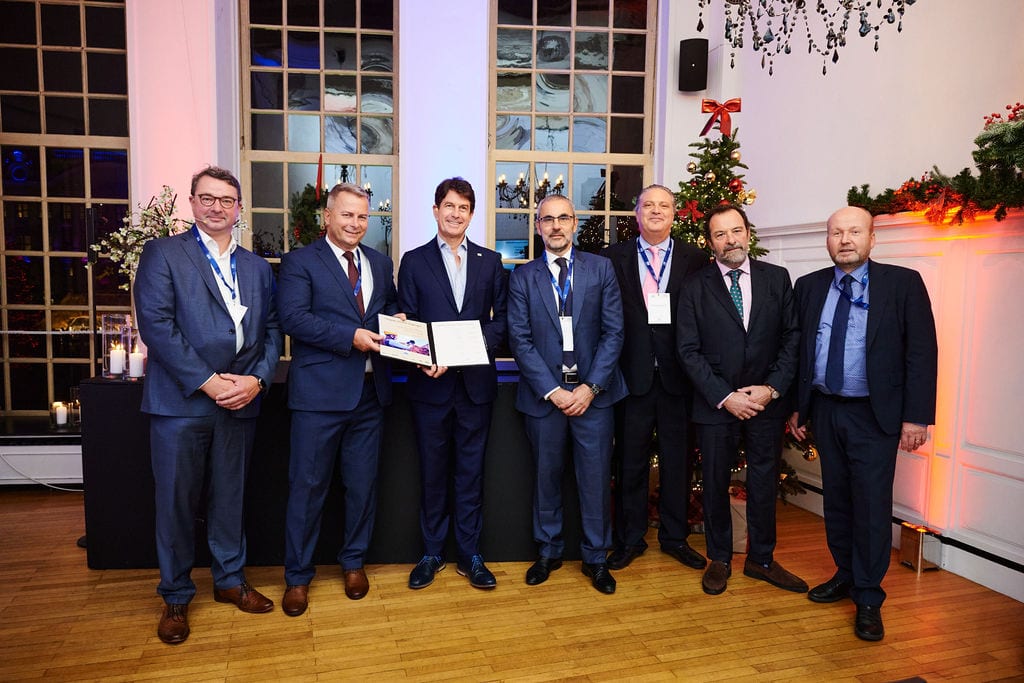
The Case for Magnesite/Magnesia
on the List of Critical Raw Materials
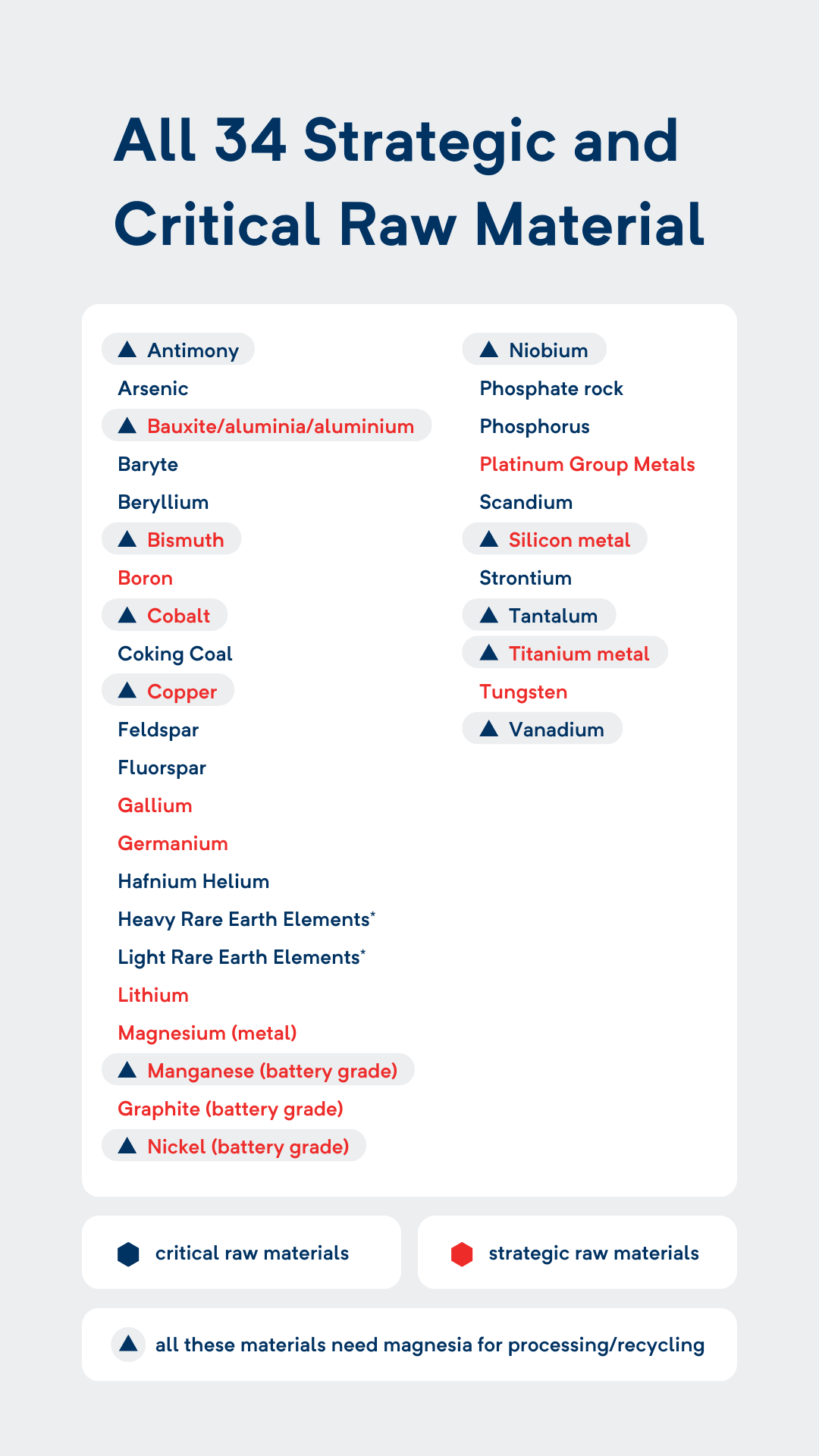
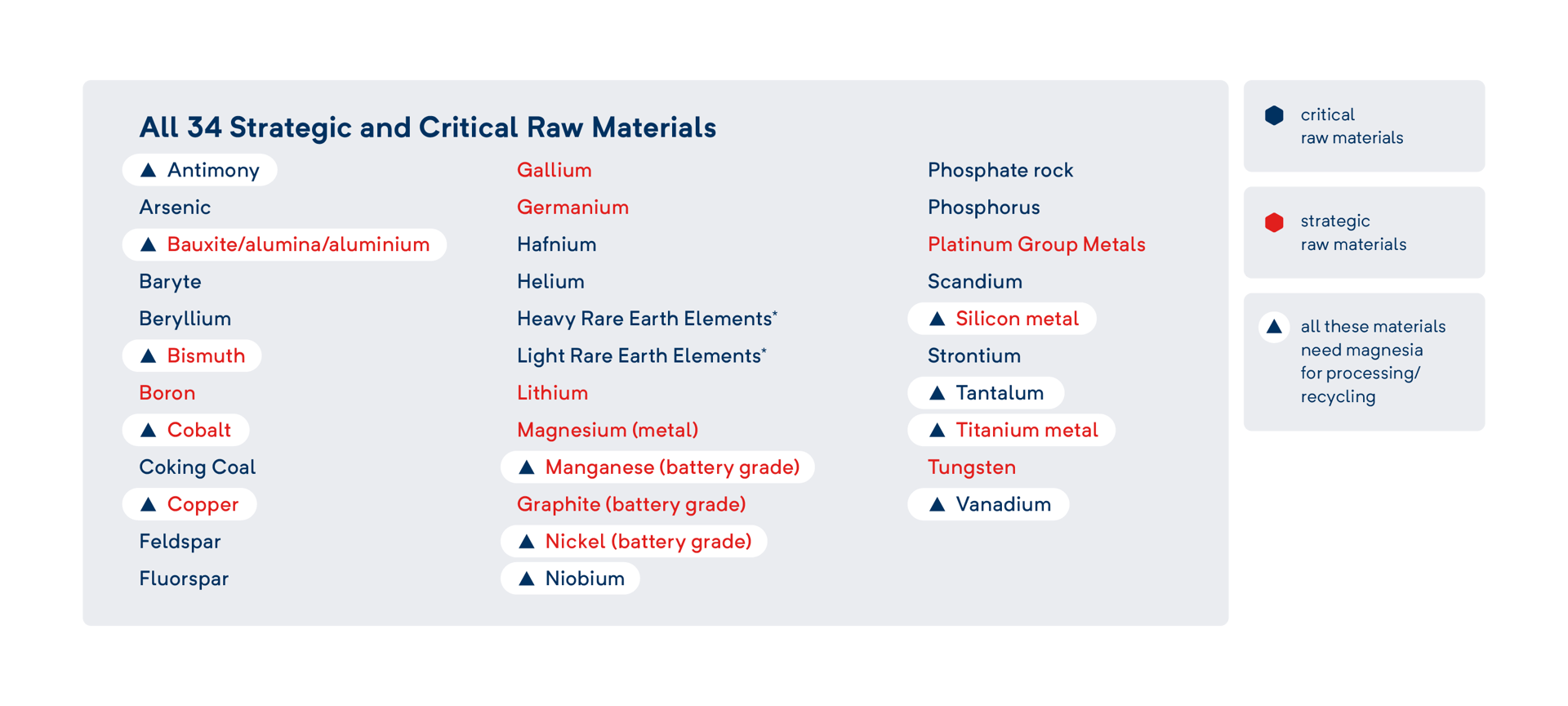
The Case for Magnesite/Magnesia
on the List of Critical Raw Materials

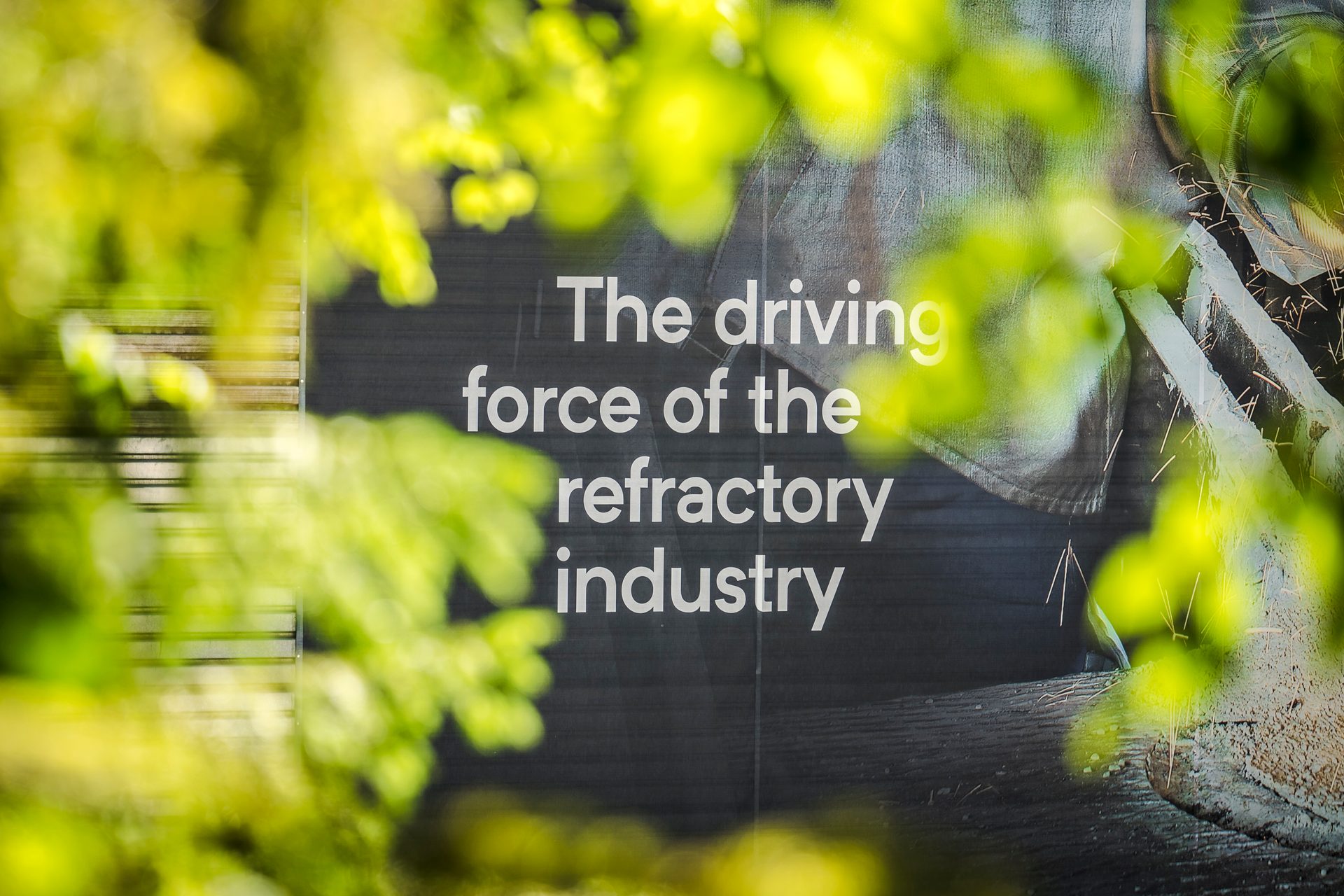
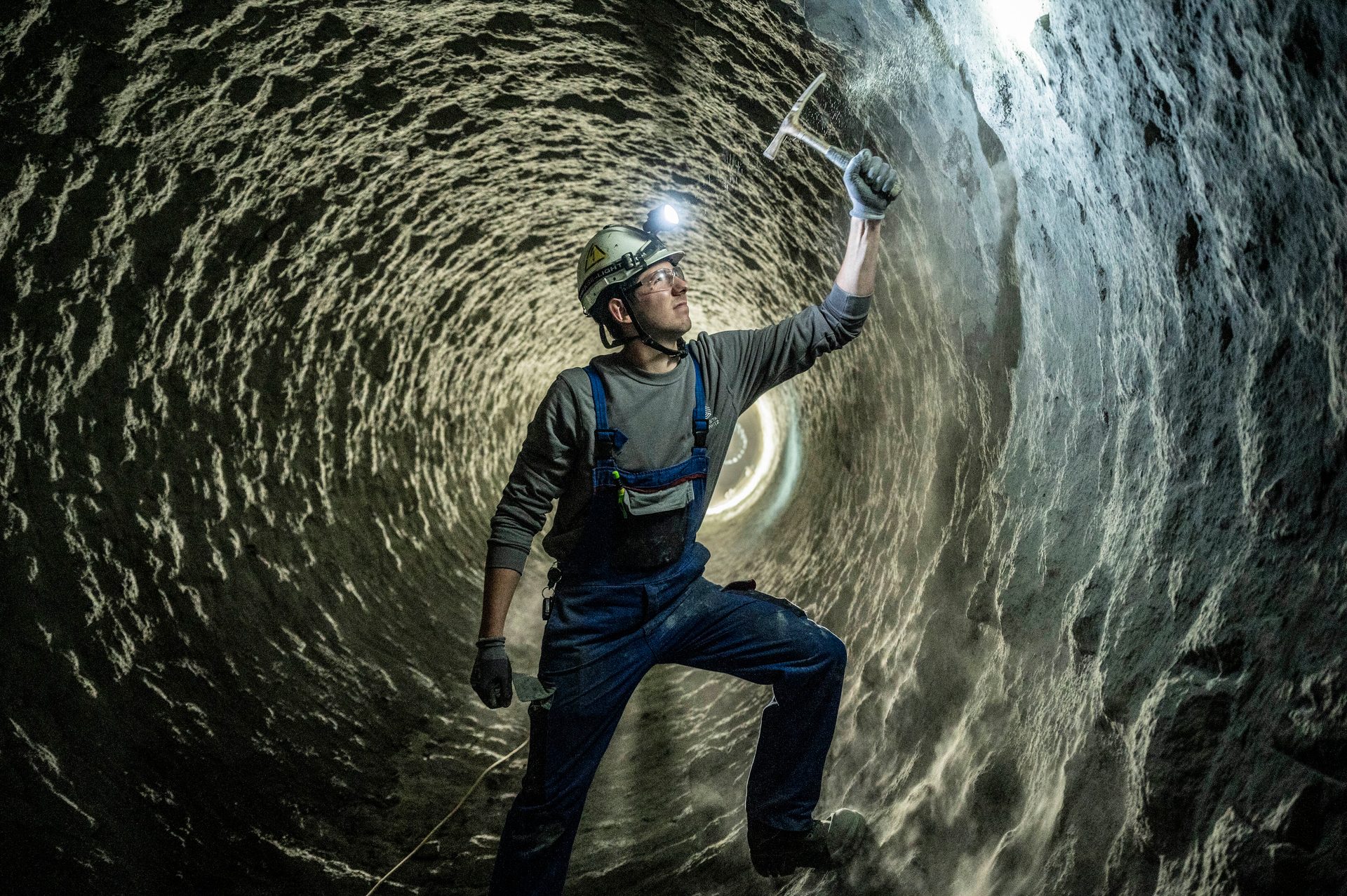
Insights Shaping the Future of Magnesia
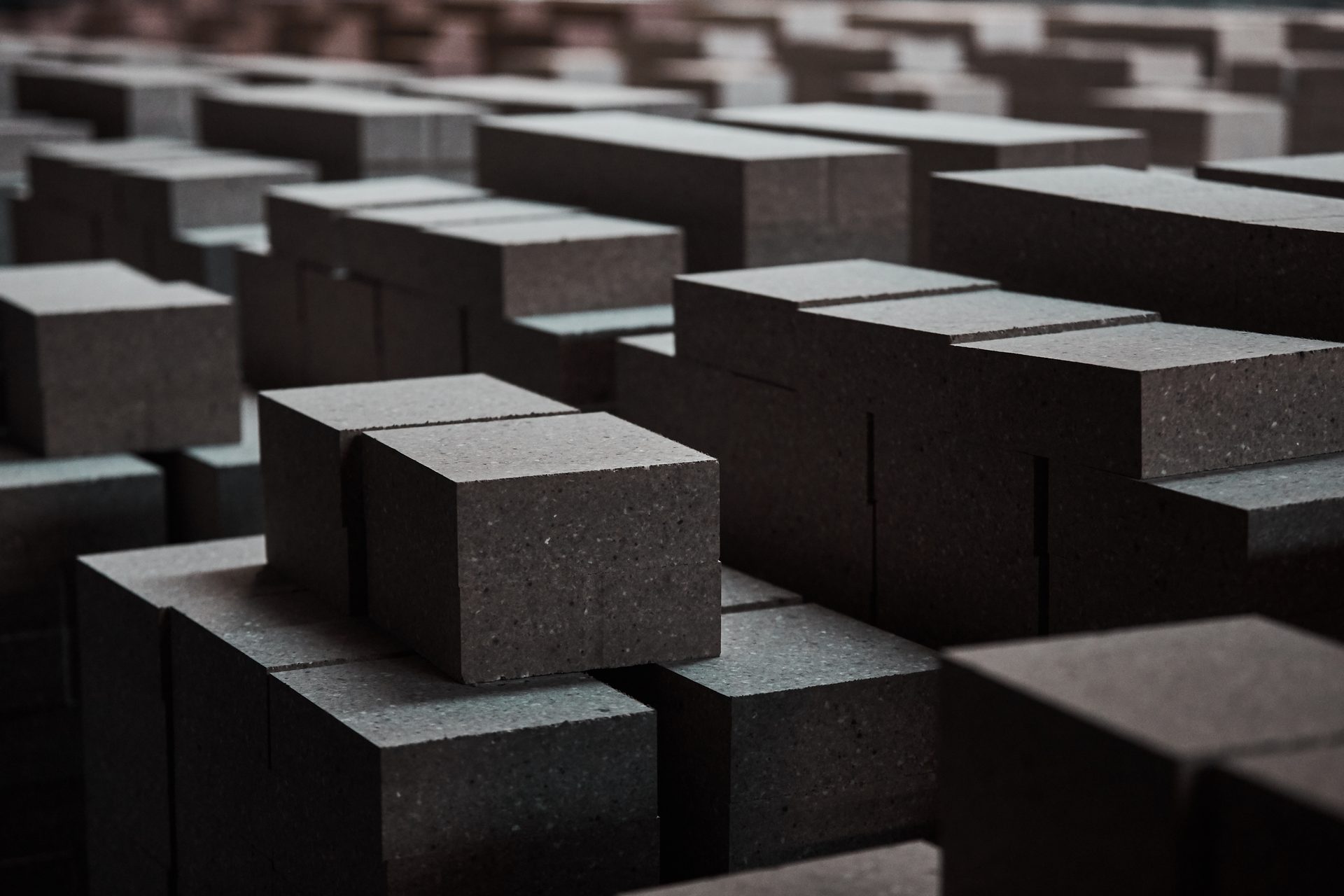
Want to learn more about this topic?
Contact us for questions or further information on our magnesite and magnesia initiative.
Contact us for questions or further information on our magnesite and magnesia initiative.